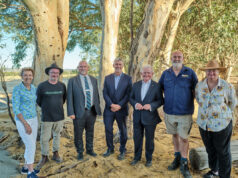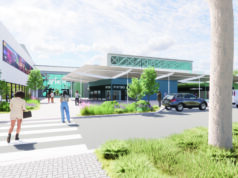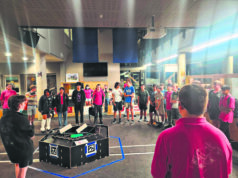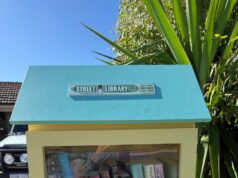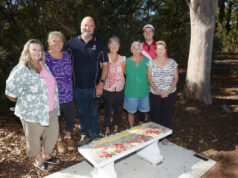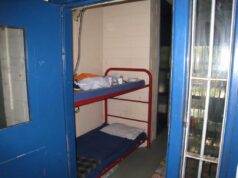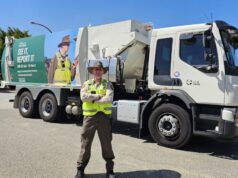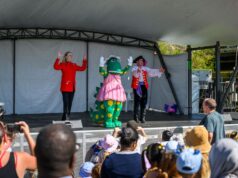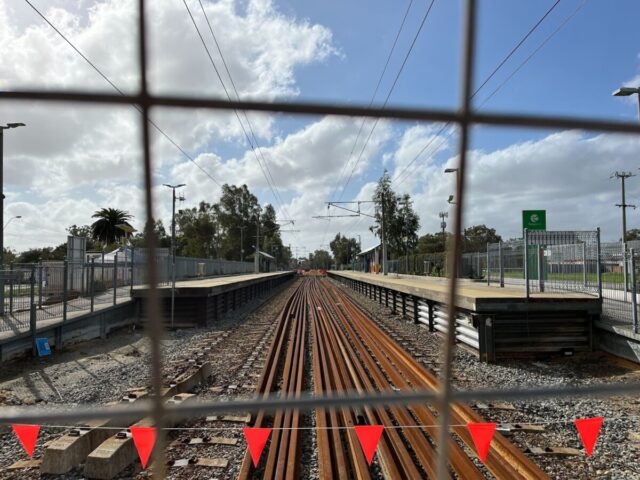
As the Armadale Line receives major upgrades, including rail elevation and new stations further up the track, the Public Transport Authority (PTA) has simultaneously been carrying out maintenance between Kenwick and Sherwood stations as part of its Rail Revitalisation Program.
The renewal work involves 15 kilometres of track being completely removed and replaced between Kenwick and Sherwood stations, as well as resurfacing upgrades to 25 pedestrian and 10 level crossings.
The project also includes the improvement and installation of new drainage systems, upgrades to overhead lines, communications, and signal facilities, which are being carried out to guarantee better connectivity with the Victoria Park-Canning Level Crossing Removal and Byford Rail Extension projects.
The PTA said the upgrades to the track in this area are vital due to the ageing infrastructure and hopes it will now minimise future maintenance shutdowns once the line reopens.
“The Armadale Line was first constructed in the 1880s and electrified in 1991. The age of rail track and associated infrastructure on this line varies, as there has been a number of track renewals over the decades, which has affected its residual life,” a PTA spokesperson said.
“The (Rail Revitalisation Program) will see about 200 workers carrying out the works. About 70 per cent of rail sleepers will be reused, and about 2600 tonnes of steel and 30,000 cubic square metres of gravel will be used to complete the project.”
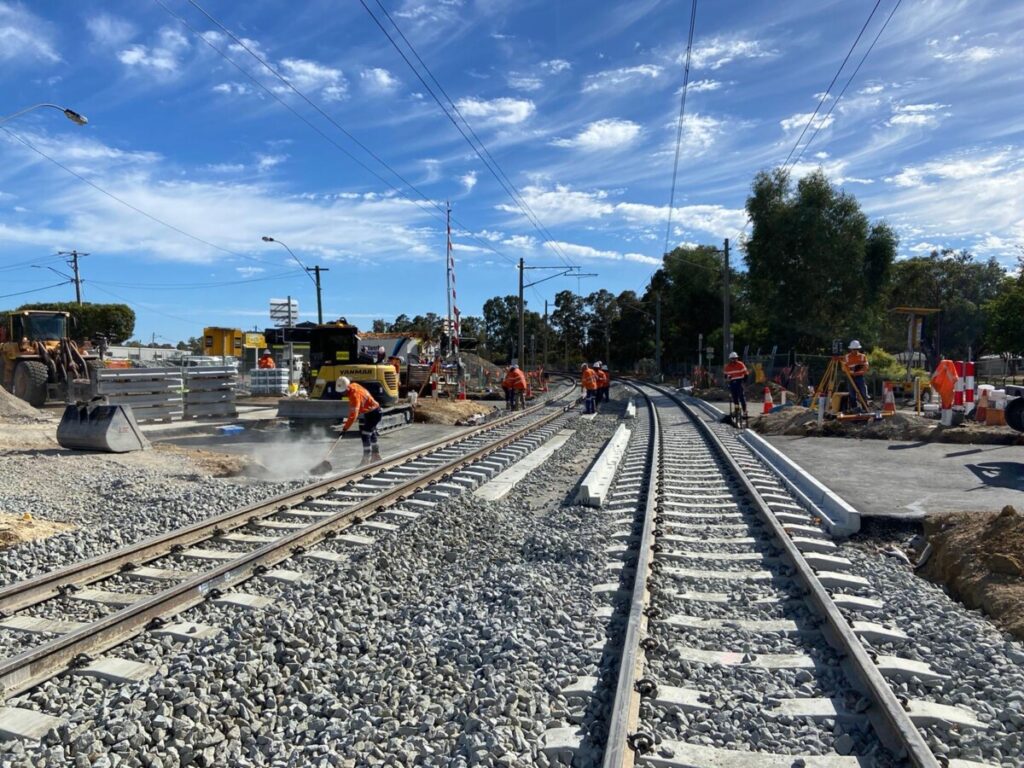
Level crossings at Albany Highway, Wanaping Road and Solent Road have already been renewed, and a further seven are expected to be upgraded before the reopening of the line, including Kelvin Road, Austin Avenue, Fremantle Road, Stalker Road, Dorothy Street and two at Kelmscott Station.
Despite the 18-month shutdown, these remaining road level crossings past Beckenham station are, for now, here to stay, and no major station upgrades will occur between Kenwick and Sherwood stations.
The spokesperson for PTA said the removal of these crossings is expected to occur eventually.
“[We have] a long-term strategy to remove all vehicle crossings on the metropolitan passenger network. This is an ongoing, staged program of works driven by safety, congestion and train frequencies,” they said.
“Significant investment has already been made along the Armadale Line between Victoria Park and Cannington.”
With the upcoming retirement of the older A-series trains expected in the coming years, which have been running since the early 1990s, individual train capacity on the remainder of the Armadale, Fremantle, and Midland lines, known at the heritage lines, will slightly decrease.
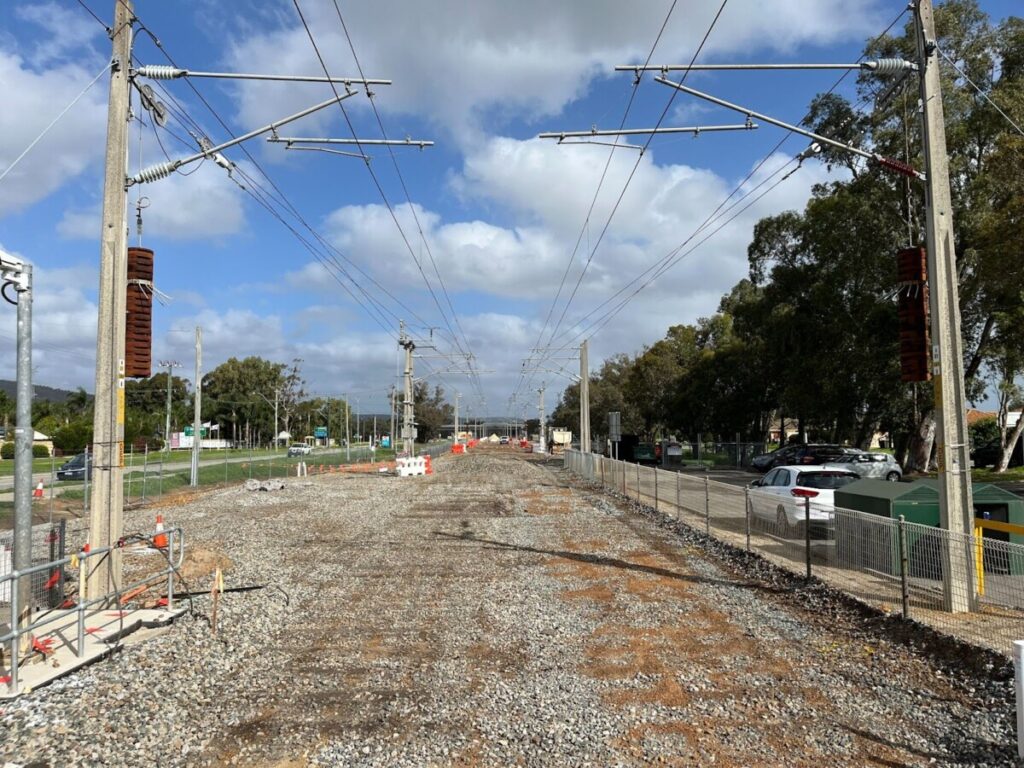
Due to the size of platforms on some of the older Armadale line stations, which can only accommodate four carriages, the new six-carriage C-series trains won’t be able to stop at these platforms.
Instead, commuters, for the foreseeable future, can expect to be boarding single three-carriage B-series trains as the older A-series trains are retired.
Currently, two A-series trains running together (4 carriages) have the capacity for 296 seated and 328 standing passengers, while one B-series train only has 240 seats and space for 320 standing commuters.
According to the PTA, alternative solutions to resolve this issue have been investigated, but believe greater train frequencies will offset any capacity decreases.

“The PTA has a long-term strategy, driven by public transport patronage forecasts, to lengthen platforms across the metropolitan passenger network to allow longer six-car trains on the entire network,” the spokesperson said.
“Selective door opening was investigated as an option to accommodate six-car trains on shorter platforms, but it was not deemed viable for technical and universal accessibility reasons. Platform extensions are the best solution.”
“The heritage lines. . . are still able to accommodate three car B-series trains and meet expected passenger demand until platform extensions are undertaken in the future.”
Speaking to The Examiner, WA Liberal Leader Libby Mettam said the State Government has “blown the biggest boom in WA’s history” on the METRONET projects, and its decision not to upgrade all platforms and remaining level crossings is an example of this.
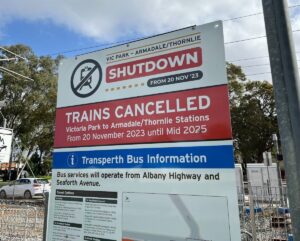
“Roger Cook has totally mismanaged METRONET since the beginning, but it takes a special type of incompetence to build trains that don’t fit on our platforms,” Ms Mettam said.
“Despite blowing the budget by $10bn, Roger Cook and his Transport Minister haven’t had the foresight to remove dangerous level crossings across the network or upgrade key stations.”
Asked if a WA Liberal government would support and fund these required upgrades, Ms Mettam’s position remained unclear.
“A Liberal Government wouldn’t be foolish enough to build trains in WA that don’t actually work in WA,” she said.
The Rail Revitalisation project is expected to be completed in line with the reopening of the Armadale/Thornlie train lines in mid-2025.


